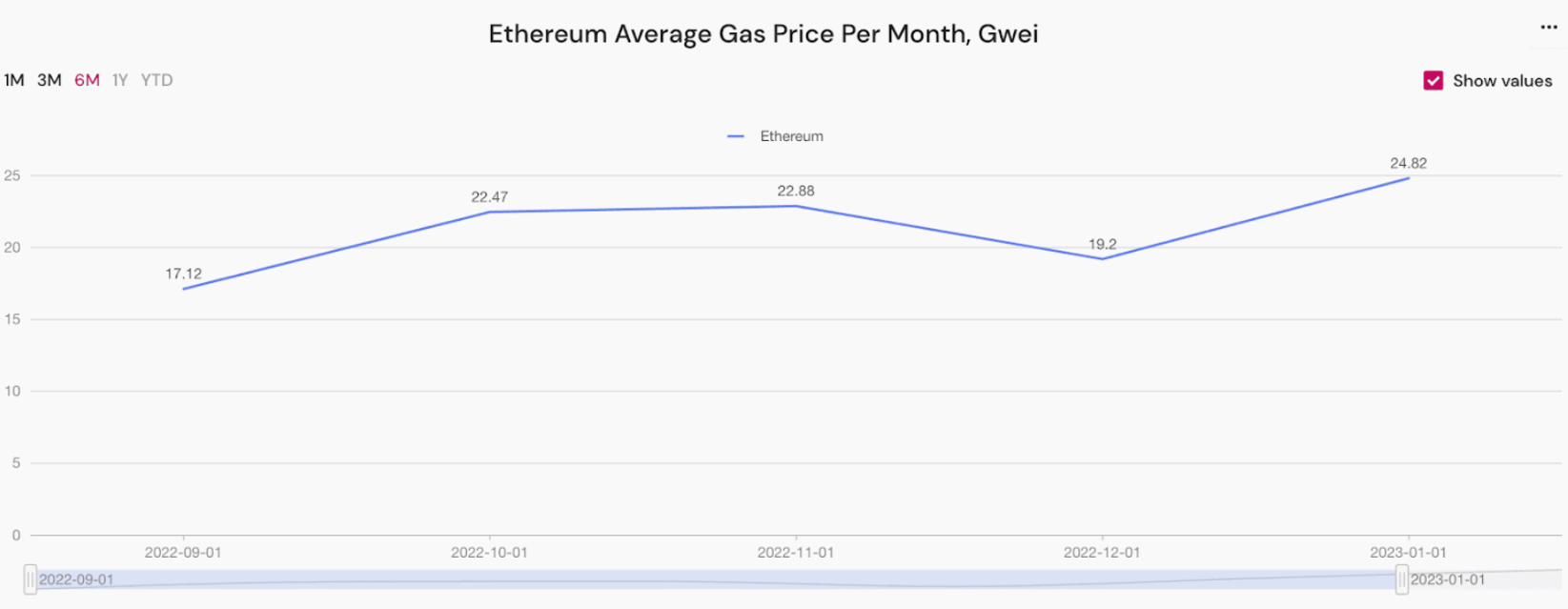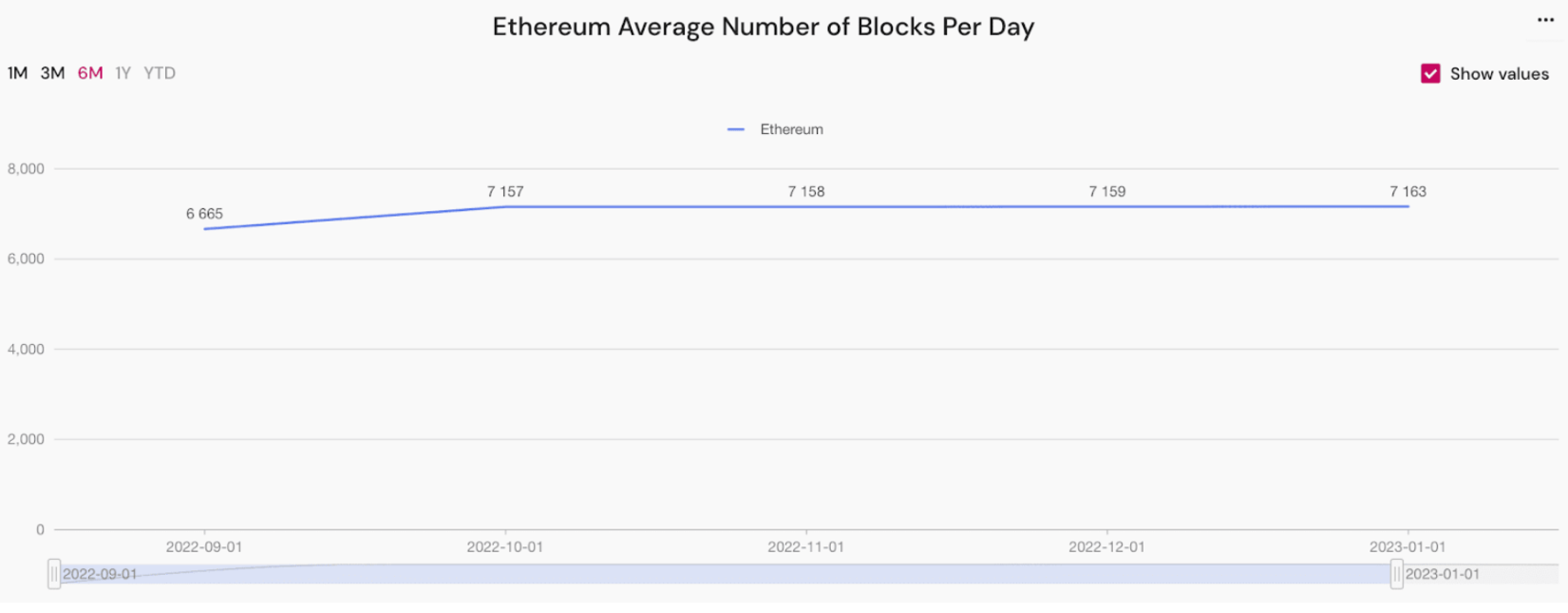Ethereum gas price spikes 29% in January as user activity grows: Report

Stepping into 2023, the cryptocurrency market seemingly shrugged off the year-long bearish sentiment from 2022. As investors took notice, the long-awaited price corrections had a significant reaction, showcased through on-chain activities on the Ethereum blockchain.
According to a data report from Analytex, Ethereum’s average gas price — calculated in terms of the smallest Ether (ETH) denomination, gwei — increased by 29.27% in January 2023. The report compares gas prices in January and December 2022, noting an increase in user activity as a key indicator for the rise in average gas price from 19.2 gwei to 24.82 gwei month on month.

Ethereum average gas price per month. Source: app.analytex.today
The report also notes that the average number of unique active Ethereum wallets per day decreased by around 10% to 387,475, the lowest figure over the past six months. Meanwhile the average number of unique active smart contracts increased by 6.74%.

Ethereum transactions peak, January 2023. Source: app.analytex.today
As shown above, other important metrics measured include daily Ethereum transaction data, which showed a slight decrease of 0.8% from December to January. The report notes that the average number of Ethereum transactions per day has been on the decline for eight months.
Related: ‘Decentralized Infura’ may help prevent Ethereum app crashes: Interview
Ethereum block statistics show that the average number of blocks mined each day showed little to no change while the total block size per month increased by 7%. Following The Merge, daily average block data has been stable at around 0.01% monthly. The total Ethereum block size per month for January was 17.24 GB, up 7.08% from December’s 16.1GB total.

Ethereum average number of blocks per day. Source: app.analytex.today
The report highlights contrasting data metrics across the board. The number of transactions and the number of unique active wallets was down from December. Meanwhile the Ethereum activity index, number of active smart contracts and average gas cost prices have all increased.
Analytex suggests that this indicates ‘increased interest of both current blockchain users, as well as smart contracts developers.’
As previously reported by Cointelegraph, decentralized finance (DeFi) protocols saw an increase in total value locked across different staking pools in January, as per a report from DappRadar. The market hit $74.6 billion worth of staked assets, increasing by 26% from December.
Ethereum’s looming Shanghai upgrade is also driving staking in DeFi due to the expected opening of withdrawals from Ethereum staking contracts. Lido Finance flipped Maker DAO as the largest DeFi protocol in January, driven by the popularity of liquid staking derivative protocols.






 Bitcoin
Bitcoin  Ethereum
Ethereum  Tether
Tether  USDC
USDC  TRON
TRON  Dogecoin
Dogecoin  Cardano
Cardano  Bitcoin Cash
Bitcoin Cash  Chainlink
Chainlink  LEO Token
LEO Token  Stellar
Stellar  Monero
Monero  Litecoin
Litecoin  Zcash
Zcash  Hedera
Hedera  Dai
Dai  Cronos
Cronos  OKB
OKB  Tether Gold
Tether Gold  Ethereum Classic
Ethereum Classic  KuCoin
KuCoin  Gate
Gate  Algorand
Algorand  Cosmos Hub
Cosmos Hub  VeChain
VeChain  Dash
Dash  Stacks
Stacks  Tezos
Tezos  TrueUSD
TrueUSD  IOTA
IOTA  Basic Attention
Basic Attention  Decred
Decred  Theta Network
Theta Network  NEO
NEO  Synthetix
Synthetix  Qtum
Qtum  Ravencoin
Ravencoin  0x Protocol
0x Protocol  DigiByte
DigiByte  Nano
Nano  Zilliqa
Zilliqa  Siacoin
Siacoin  Numeraire
Numeraire  Waves
Waves  Ontology
Ontology  Enjin Coin
Enjin Coin  Status
Status  Pax Dollar
Pax Dollar  BUSD
BUSD  Hive
Hive  Lisk
Lisk  Steem
Steem  Huobi
Huobi  NEM
NEM  OMG Network
OMG Network  Augur
Augur  Bitcoin Gold
Bitcoin Gold  Ren
Ren  HUSD
HUSD